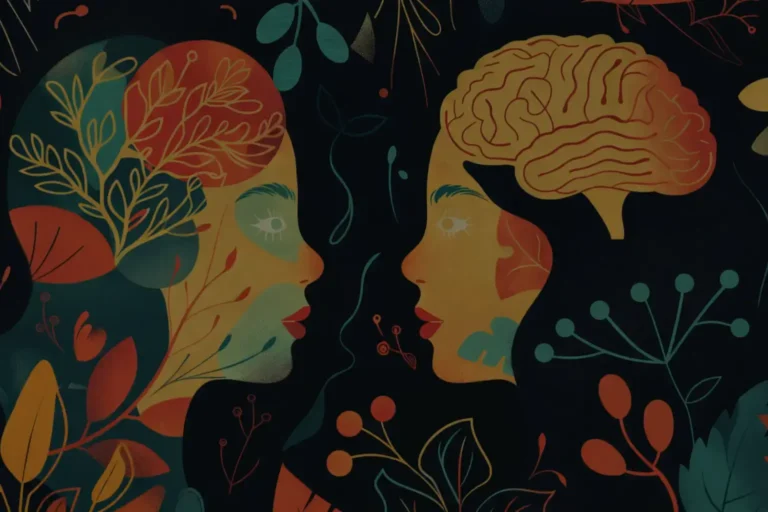The psychology of power exchange explains something many people feel but rarely have language for. Why does surrender feel liberating? Why can taking control feel stabilizing? Why do consensual dominance and submission create such profound emotional intensity?
Power exchange is often reduced to aesthetics or stereotypes. From the outside, it can look theatrical, extreme, or purely sexual. But the psychology of power exchange is far more nuanced. It reflects how humans process trust, attachment, vulnerability, safety, identity, and nervous system regulation.
Whether someone identifies as dominant, submissive, switch, or simply curious about power dynamics, the desire to give or receive control is rarely random. It grows from deeply human wiring. Understanding the psychology of power exchange allows us to move beyond stigma and into informed, ethical exploration.
What Is Power Exchange?
Power exchange refers to consensual dynamics where one person temporarily or relationally gives authority to another within clearly negotiated boundaries. This can occur during scenes, within structured relationships, or as part of long term relational agreements.
The defining element is consent. Power is not taken. It is offered and accepted. The psychology of power exchange rests on this voluntary shift. Without consent, there is no exchange, only coercion.
In healthy dynamics, both partners remain autonomous individuals. Roles are chosen and can be renegotiated. Control does not disappear. It shifts form.
The Evolutionary Roots of Power Dynamics
To understand the psychology of power exchange, we need to look at human social behavior more broadly.
Humans are relational creatures. We evolved within social hierarchies, cooperative structures, and leadership systems. Throughout history, survival often depended on clear roles. Leadership and followership were not moral categories. They were adaptive functions.
The psychology of power exchange taps into these ancient patterns. When structured intentionally, power dynamics create clarity. Clarity reduces uncertainty. Reduced uncertainty lowers stress responses.
What makes power exchange unique is that it brings these hierarchical instincts into a negotiated, consensual framework. It becomes a space to experiment with power without permanent consequences.
The Nervous System and the Desire for Structure
A central component of the psychology of power exchange is nervous system regulation.
Ambiguity often triggers anxiety. When roles are unclear, the brain works harder to interpret cues. In contrast, defined power dynamics reduce ambiguity. There is less guesswork. Expectations are explicit.
For some people, especially those who experience anxiety, ADHD, or trauma responses, clear structure can feel profoundly grounding. When roles are defined, the nervous system has fewer variables to manage.
Surrender can feel calming because it reduces cognitive load. Control can feel stabilizing because it creates predictable responsibility. The psychology of power exchange is deeply tied to how safety is perceived in the body.
The Appeal of Surrender
Surrender is frequently misinterpreted as weakness. In reality, surrender within ethical power exchange requires clarity, trust, and self awareness.
Many people who enjoy surrender describe experiences such as:
- Relief from constant decision making
- Emotional release
- Decreased self monitoring
- Increased sensory immersion
- Feeling deeply seen and cared for
The psychology of power exchange reveals that chosen surrender can increase empowerment. When someone voluntarily offers control within negotiated limits, they are exercising agency.
Surrender works psychologically because it is structured. It exists inside agreed boundaries. The ability to pause, renegotiate, or withdraw consent at any time maintains autonomy. That autonomy is what allows surrender to feel safe.
For individuals who carry heavy responsibility in daily life, surrender can rebalance internal stress. It can provide space to simply respond rather than manage.
The Appeal of Control
Dominance is equally misunderstood. Healthy control within power exchange is not about ego or entitlement. It is about responsibility and attentiveness.
People who are drawn to control often report satisfaction in:
- Creating structure
- Providing containment
- Reading emotional and physical cues
- Facilitating another person’s experience
- Holding space safely
The psychology of power exchange reframes dominance as leadership within consent. Effective dominants regulate themselves first. They monitor consent continuously. They adjust in response to feedback.
Control in this context is collaborative. It depends on the trust of the person offering surrender.
Without empathy, control becomes coercion. With empathy, it becomes intentional guidance.
Attachment Styles and Power Exchange
Attachment theory also plays a role in the psychology of power exchange.
Secure attachment allows individuals to explore both control and surrender without fear of abandonment. Anxious attachment may seek reassurance through structured dynamics. Avoidant attachment may find safety in clearly defined roles that limit emotional ambiguity.
Power exchange does not create attachment patterns, but it can amplify them. That is why communication and aftercare are essential.
When practiced ethically, the psychology of power exchange can support secure bonding. When practiced without awareness, it can reinforce insecurity.
Neurochemistry and Intensity
The psychology of power exchange is also influenced by neurochemistry.
Intensity, anticipation, and structured ritual can trigger the release of adrenaline, dopamine, and endorphins. These chemicals increase focus and reduce pain perception. They also enhance emotional bonding.
This is one reason why scenes can feel transformative. The combination of trust, structure, and neurochemical shifts creates heightened experience.
However, intensity alone does not equal growth. Without reflection and integration, emotional intensity can become destabilizing rather than enriching.
Identity Exploration Through Power
Power exchange provides a laboratory for identity exploration.
Someone who feels unseen may discover confidence in dominance. Someone who feels overwhelmed by responsibility may discover relief in surrender. Someone who has never been allowed to express authority may find empowerment in structured leadership.
The psychology of power exchange allows individuals to experiment with different relational roles without permanently redefining themselves.
Importantly, roles in kink do not automatically define personality outside those dynamics. A submissive can be assertive in daily life. A dominant can be gentle and collaborative outside structured play.
The psychology of power exchange supports flexibility rather than rigid categorization.
Ritual, Predictability, and Emotional Safety
Ritual is another overlooked aspect of the psychology of power exchange.
Rituals create predictability. Predictability fosters safety. Whether it is a collaring ceremony, specific language, or structured scene negotiation, ritual signals intentionality.
Intentionality reduces ambiguity. Reduced ambiguity calms the nervous system.
For many people, especially those who are neurodivergent, predictability enhances immersion. When the brain does not have to analyze constantly, it can focus on sensation and connection.
Common Misconceptions About Power Exchange
Understanding the psychology of power exchange requires challenging common myths.
One myth is that power exchange is about domination outside consent. In reality, ethical dynamics are collaborative and negotiated.
Another myth is that submissive partners lack agency. In truth, surrender requires ongoing consent and communication.
Some assume dominants hold absolute power. In ethical dynamics, the person who consents to surrender defines the limits.
Others believe power exchange is purely sexual. Many dynamics include emotional structure, mentorship, ritual, or relational agreements that extend beyond physical intimacy.
Ethical Foundations of Healthy Power Exchange
If you are exploring the psychology of power exchange, ethics must come first.
Clear communication is essential. Negotiation should happen before any scene. Safe words or signals must be respected immediately. Aftercare should be intentional. Debriefing helps integrate emotional experiences.
Healthy power exchange is dynamic and adaptable. It evolves over time. It allows space for growth without pressure.
For foundational knowledge, read BDSM Classes: Your Ultimate Guide to Starting Your BDSM Journey.
For practical negotiation language, explore Boundary Scripts You Can Actually Say.
When Power Exchange Becomes Harmful
Power dynamics become unhealthy when consent is ignored, boundaries are dismissed, or emotional manipulation is reframed as dominance.
Warning signs include coercion, isolation from support systems, shaming boundaries, and refusal to renegotiate.
The psychology of power exchange never justifies harm. Intensity is not an excuse for abuse. Ethical dynamics leave both partners feeling respected and grounded.
Why We Crave Both Control and Surrender
At its core, the psychology of power exchange reveals something deeply human.
We crave structure and autonomy. We crave vulnerability and strength. We crave safety and intensity. The desire to control or surrender is not a contradiction. It reflects our need to feel anchored and seen within relationship.
Power exchange allows us to explore these dualities intentionally. It gives language and container to impulses that already exist in everyday relational life. When practiced ethically, the psychology of power exchange can deepen intimacy, strengthen communication, and support nervous system regulation. When misunderstood, it can reinforce fear, shame, or unhealthy dynamics.
The difference lies in consent, communication, and self awareness.
If you are curious about exploring power dynamics but feel unsure where to start, you do not have to navigate it alone. Understanding the psychology of power exchange is one thing. Applying it safely and sustainably within your own relationships is another. Working with a kink-informed coach can help you clarify your desires, identify patterns, build negotiation skills, and design dynamics that align with your values rather than stereotypes.
Power exchange should feel empowering, not confusing or destabilizing. Whether you are exploring dominance, surrender, switching, or simply trying to understand your own relational wiring, support can make the process clearer and safer.
If you are ready to explore the psychology of power exchange in a grounded, intentional way, you can learn more about my coaching services and book a session through my website. Your desires deserve nuance, not judgment.










